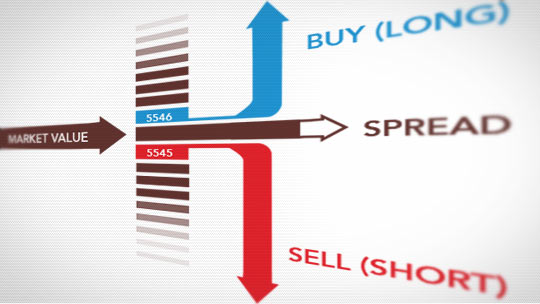
If you’re new to the world of Forex trading, then you’ll be wondering what is spread in forex: a term used in the Forex trading world that can be very confusing to those who don’t know what it’s all about.
What is Spread in forex?
When you trade forex, you are essentially buying one currency and selling another. The value of a currency is based on its ability to purchase other currencies. When one currency becomes more valuable than another, this is called a “spread.” Spreads can be small or large, but they always exist in some form.
The size of the spread depends on a number of factors, including the volatility of the currencies involved and the current market conditions. In general, however, the spread is usually very small – sometimes as little as 0.1%. This means that for every $100 you want to trade, you only need to put down $0.10 as collateral.
Of course, this also means that your potential profits (or losses) are limited to 10% of your investment. So if you’re looking to make a quick buck off of forex trading, you’re going to be disappointed. But if you’re patient and willing to take a long-term view of things, then forex trading can be a great way to make money.
How Is The Spread Used?
When it comes to forex trading, the spread is the difference between the bid price and the asking price. It is important to note that the spread is not a fixed number, but rather it fluctuates based on market conditions. The bid price is the price at which a trader can buy a currency pair, while the asking price is the price at which a trader can sell a currency pair.
The spread is used by traders in two different ways. The first way is to simply take into account the spread when making trades. For example, if a trader wants to buy EUR/USD at 1.3000 and the current ask price is 1.3005, the trader would need to factor in the 5 pip spread when making their decision.
The second-way traders can use the spread is by using it as a stop-loss order. By placing their stop loss orders at or near the bid/ask spread, traders can reduce their risk as they will only be stopped out of their position if there is a major move in the market.
How Does It Affect Traders?
The spread is the difference between the bid and asks the price of a currency pair. It is typically a very small number, but it can have a big impact on your trading.
When you place a trade, you are essentially buying one currency and selling another. The spread is how broker makes their money. They will quote you a slightly higher price for the currency you are buying, and a slightly lower price for the currency you are selling. The difference between those two prices is the spread.
The spread can have a big impact on your profits or losses. If you are only looking to make a small profit on each trade, then the spread can eat into that profit. On the other hand, if you are looking to make a large profit, then the spread will have a smaller impact.
You need to be aware of the spread when you are trading, and factor it into your decisions. If you are not comfortable with the spread, then you should look for another broker who offers tighter spreads.
Why Does The Spread Matter?
When you place a trade in the forex market, you are effectively buying one currency and selling another. The value of a currency is always quoted in terms of another currency, so you will see something like this: EUR/USD = 1.2500. This means that for every euro you buy, you are selling 1.25 US dollars.
The spread is the difference between the bid price and the asking price of a currency pair. The bid price is the price at which you can sell a currency, while the asking price is the price at which you can buy it. The spread is usually quoted in pips, which is the smallest unit of change in a currency pair.
In the example above, if the bid price for EUR/USD was 1.2450 and the asking price was 1.2505, then the spread would be 5 pips.
The spread matters because it is effectively a commission that you have to pay to your broker for each trade that you make. The larger the spread, the more expensive it is to trade. This is why it is important to choose a broker with tight spreads.
Conclusion
In conclusion, the concept of spread in forex trading is relatively simple to understand. It is simply the difference between the bid and asks the price of a currency pair. Spreads can be fixed or variable, and they can also vary depending on the time of day and the liquidity of the market. However, spreads are an important part of forex trading, and understanding how they work can help you better manage your trades and make more informed decisions about when to enter and exit the market.








